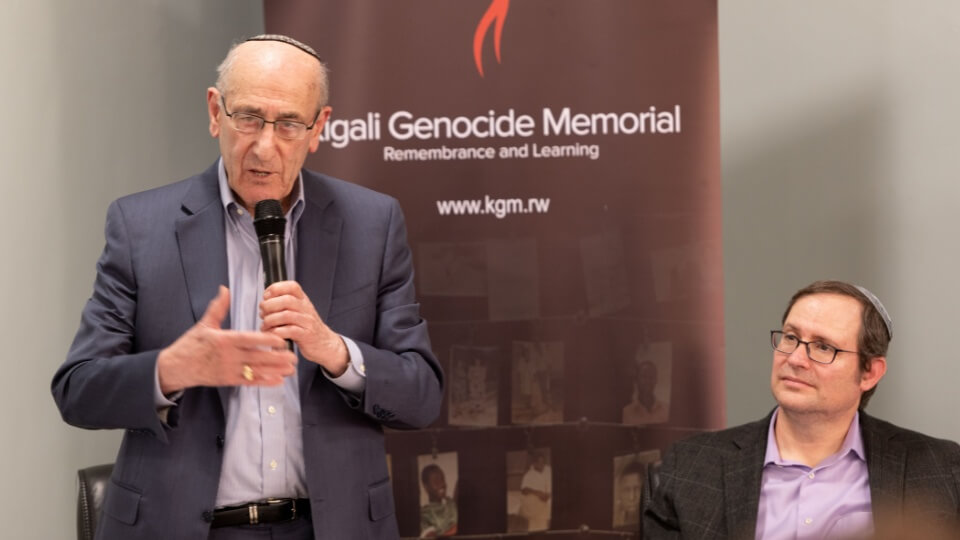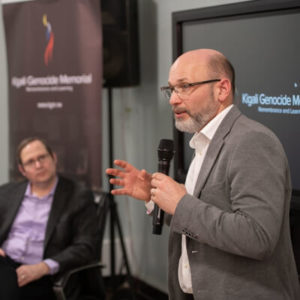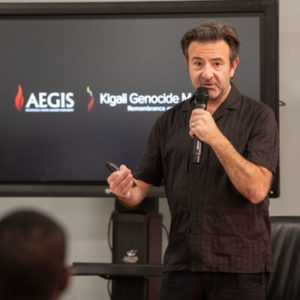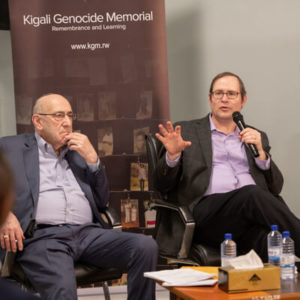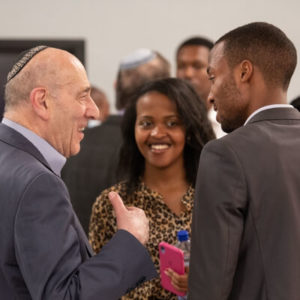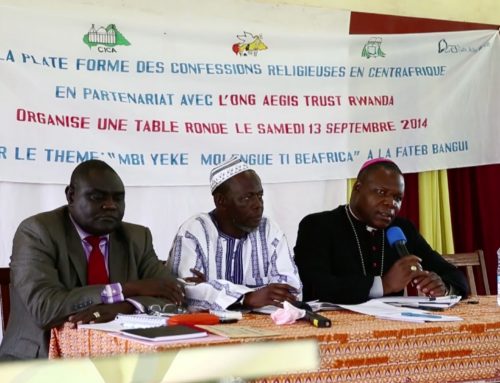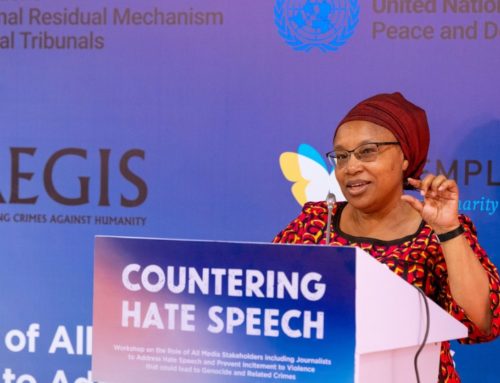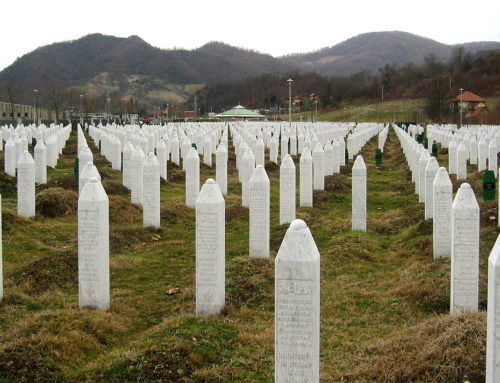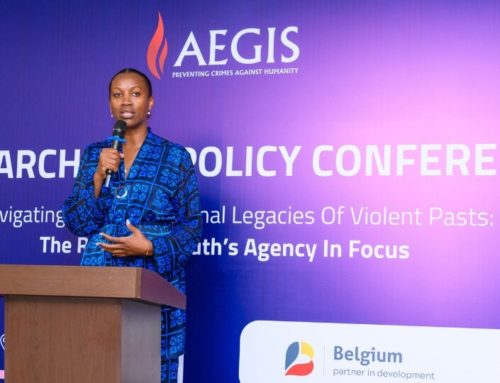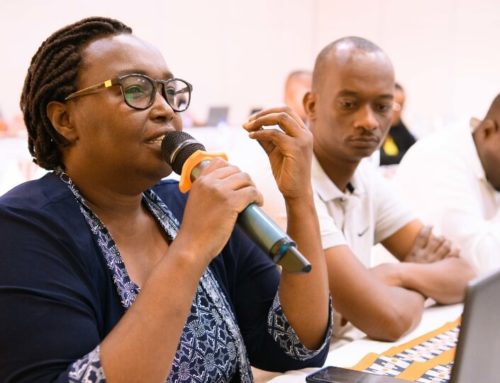On the eve of International Holocaust Memorial Day, Rwandan students gathered at the Kigali Genocide Memorial to take part in a conversation with Holocaust survivor Emil Fish, listening to his testimony and asking questions about his experience (click here to watch the full conversation).
Emil was welcomed by Dr James Smith, founder and Chief Executive of the Aegis Trust, which manages the Kigali Genocide Memorial on behalf of the Ministry of National Unity & Civic Engagement. “I can’t tell you how indebted we are that you’ve travelled from New York to be with us today to share the story of what happened to you and your family and to millions of other people, Jewish people, under the horrors of the Nazi regime in the 1930s and 40s,” he said.
Emil was also joined on the platform by Marc Cave, CEO of the UK National Holocaust Centre (the birthplace of Aegis) and by Dr Shay Pilnik, Director of the Emil A. and Jenny Fish Center for Holocaust and Genocide Studies at Yeshiva University, New York.
Marc Cave unpacked the longstanding relationship between the Kigali Genocide Memorial and the UK Holocaust Centre, which was founded by James and Stephen Smith in 1995 – just a year after the Genocide against the Tutsi. “Here in Rwanda it’s the same ethos, the same approach, although of course the circumstances are very different,” he said.
Shay Pilnik introduced Emil Fish, and explained how their visit to Rwanda for Holocaust Memorial Day had come about. A meeting with the Aegis Trust’s Executive Director Freddy Mutanguha, a survivor of the Genocide against the Tutsi, “changed the way I look at Holocaust education and changed my life,” he said. “What I learned from Freddy is that the story of the Holocaust can be incredibly meaningful in a different context. Every story is unique … but when you want to learn how genocide evolves and what process brings genocide from A to Z, the patterns are the same…. When I told Emil about Freddy and told him that for International Holocaust Remembrance Day we had an invitation from Kigali, Emil’s immediate response was, “we’re going there.”
“Never Again is a dream … education is the key”
79 years ago, Emil was a nine-year-old boy living with his family in Slovakia when they were detained by the Gestapo. His father was sent to Buchenwald Concentration Camp. He, his mother and sister were sent to Bergen Belsen Concentration Camp. Remarkably, all four of them survived. Nine out of every ten Jews in Slovakia did not, including all of Emil’s extended family on his father’s side.
“There were thousands of people, thousands of people lying dead. And the Germans didn’t know what to do with us dead people,” Emil recalled from the last days of Belsen. “On April 15 we were liberated by the English, and the English had no idea what to do with us. They fed us water and food. Ten thousand of us died immediately, because we were so skinny.”
Emil and his family built a new life in the United States. “I’m a businessman,” he said. “I lived the American Dream … and one day, I visited my home town and realised I’m going to give up my business and I’m going to concentrate on teaching about the Holocaust, that it shouldn’t happen again. That’s what I’ve been doing for 20 years, and that’s my purpose in life.”
One of the first questions Emil received from his audience was what the biggest takeaway of his visit to Rwanda would be.
“The thing I learned from my whole trip is two words – ‘Never Again’ – is a dream,” he said. “That’s all it is. It happened here. It’s going to happen again and again and again, until education. Education is the key. Why education? Because when you have money, you lose it; when you’re good-looking, you can become ugly; but you can’t take away your education. It’s something you invest in and nobody can take it away from you.”

